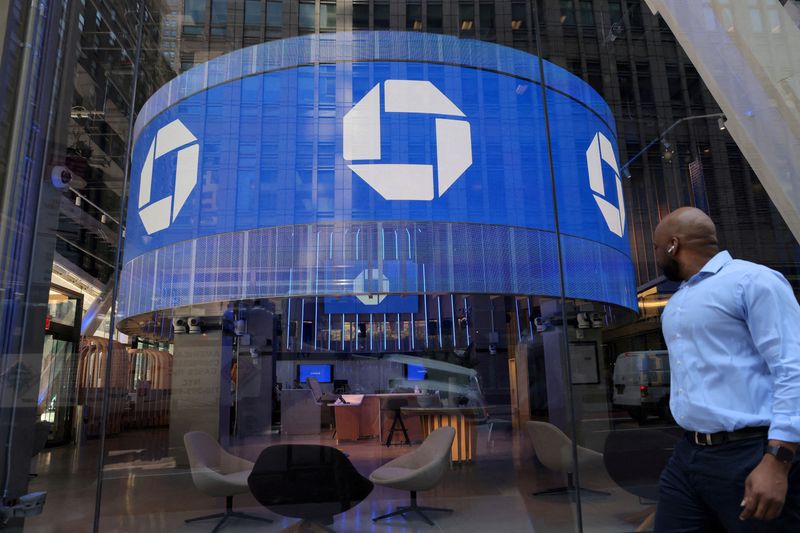By Jonathan Stempel
NEW YORK (Reuters) -JPMorgan Chase was sued by customers who accused the largest U.S. bank of having unfairly charged fees when they deposited checks that, through no fault of their own, bounced.
In a proposed class action filed on Tuesday night, five customers said New York-based Chase docked $12 "deposited item returned fees" from their accounts when checks they tried to deposit were returned unpaid.
Checks can bounce for many reasons, including when writers do not have enough money in their accounts or issue stop payment orders, or when the checks contain errors.
The Chase customers called the bank's "junk fees" for returned checks "unconscionable" and "predatory," citing an October 2022 U.S. Consumer Financial Protection Bureau bulletin that said indiscriminately charging such fees was likely illegal.
"By charging these deposited item return fees, Chase unfairly targeted its customers with financial penalties for faulty checks the customers had no hand in issuing," the complaint said. "They did nothing wrong, yet were penalized."
Chase declined to comment on the lawsuit, but said it stopped charging the fees in December 2022.
The five customers said they were charged between November 2021 and October 2022.
Their lawyer Lisa Considine called imposing the fees "a pervasive and unfair industry practice."
The complaint seeks at least $5 million of damages for Chase customers nationwide, alleging violations of New York, California, Illinois and New Jersey consumer protection laws. It was filed in the White Plains, New York federal court.

In October, the Biden administration called for a crackdown on hidden and surprise fees in banking and other sectors including car rentals, hotels and concert tickets, saying the fees cost Americans tens of billions of dollars a year.
The case is Maslowski et al v JPMorgan Chase (NYSE:JPM) Bank NA, U.S. District Court, Southern District of New York, No. 24-01277.